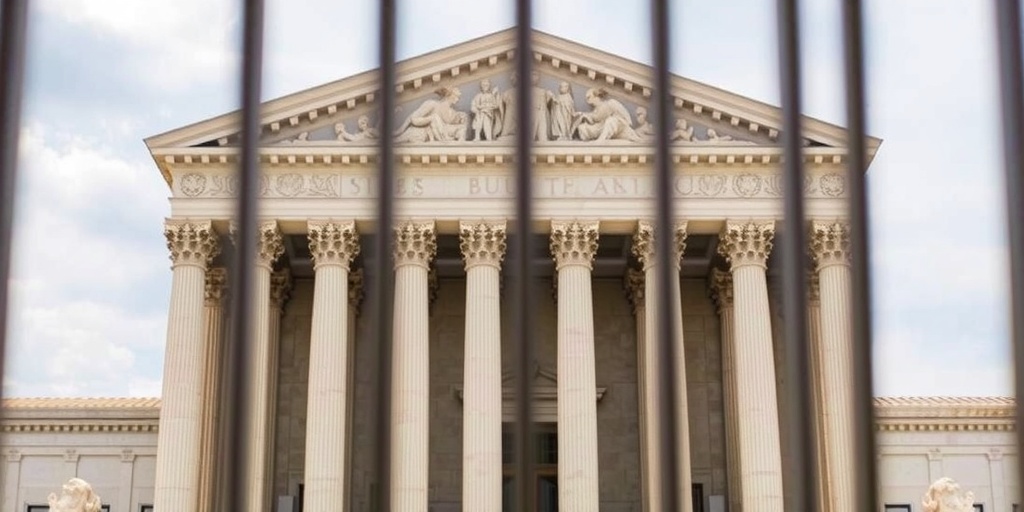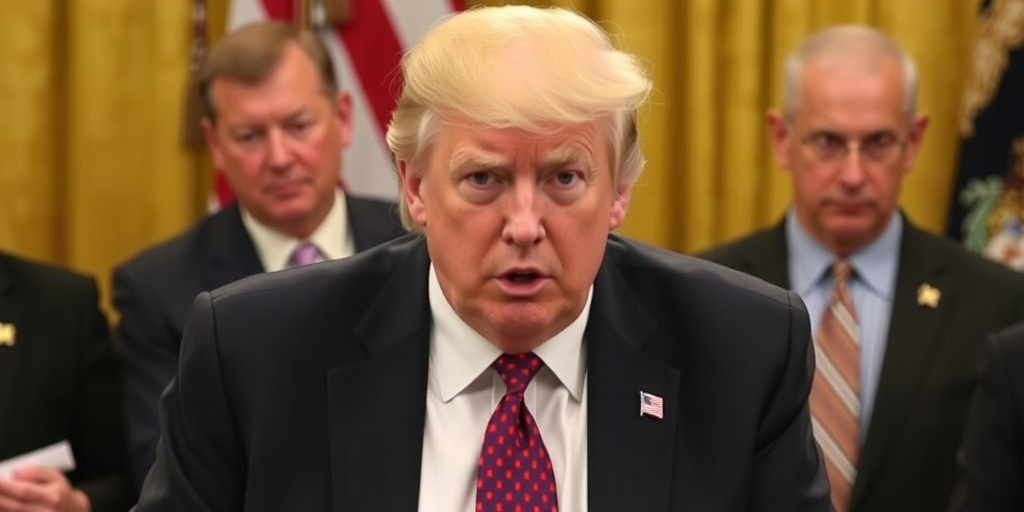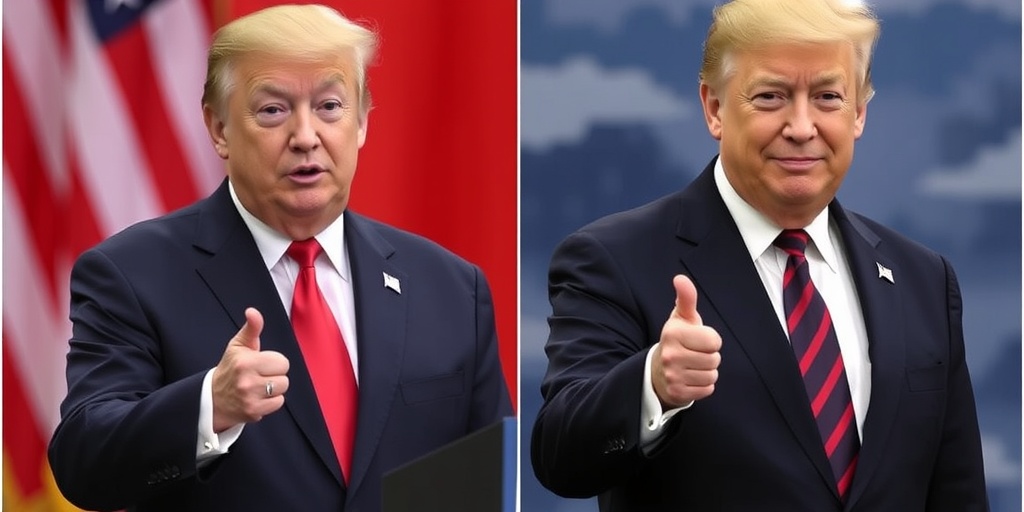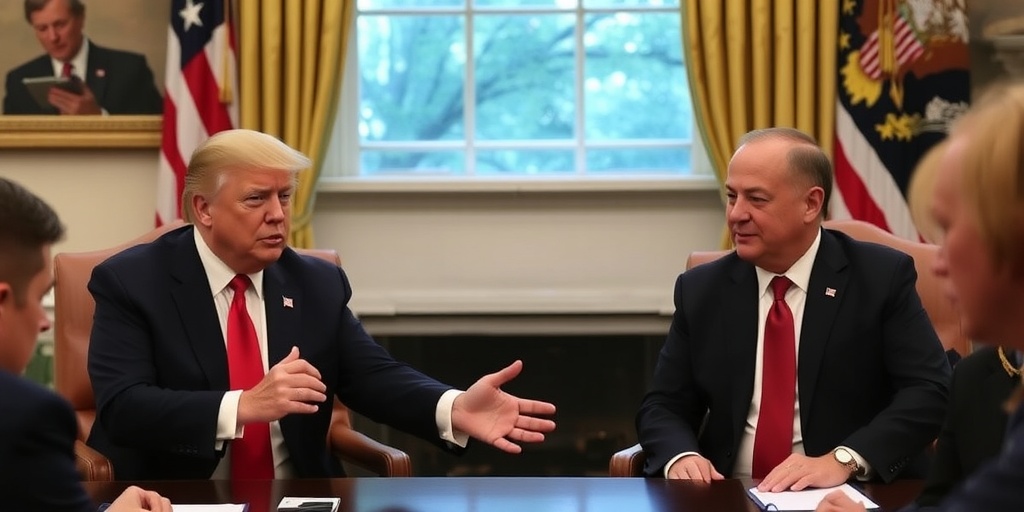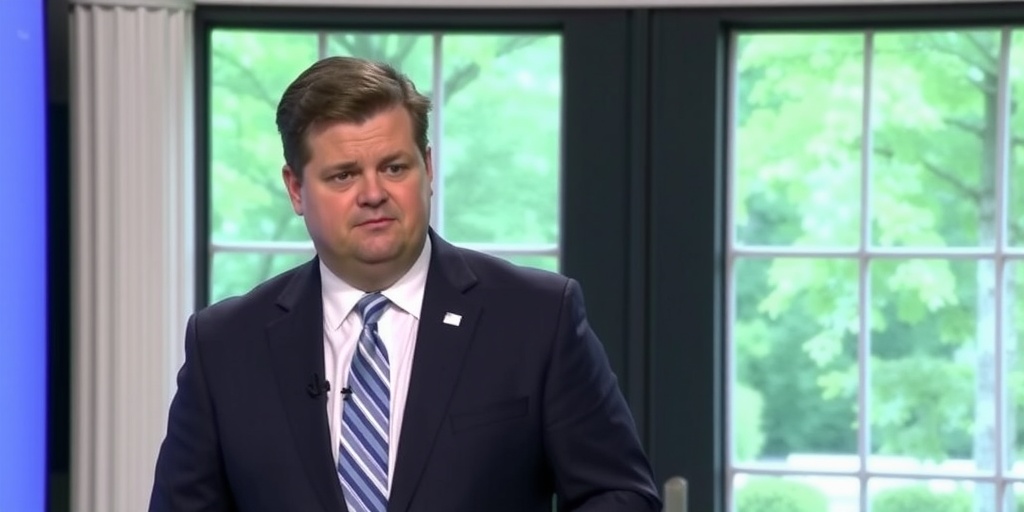Now Reading: Trump to Sign Order Making English the Official Language of the U.S.
-
01
Trump to Sign Order Making English the Official Language of the U.S.
Trump to Sign Order Making English the Official Language of the U.S.
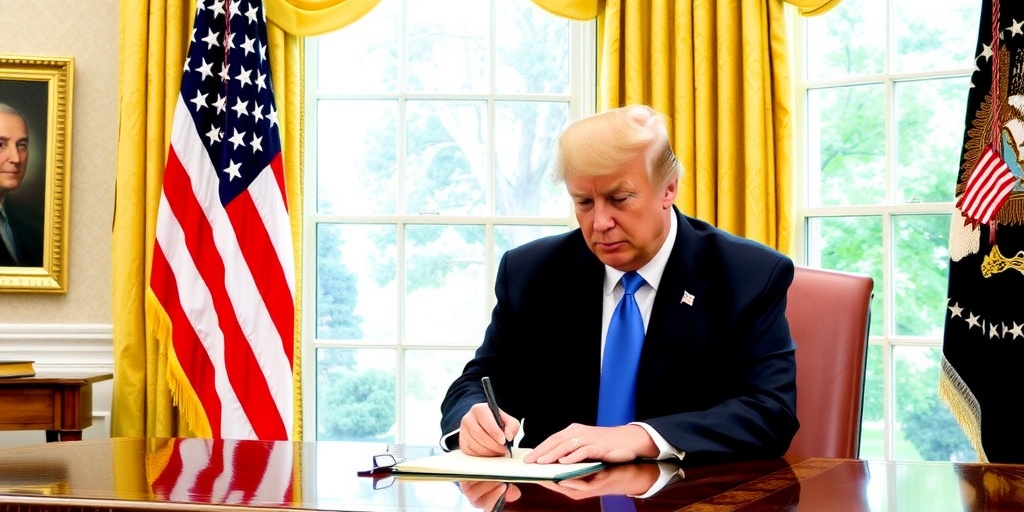
Trump’s Proposal to Declare English the Official Language of the U.S. Sparks Controversy
In a significant development that echoes the political rhetoric of 2015, former President Donald J. Trump is reportedly planning to sign an executive order to officially designate English as the language of the United States. This proposal comes as Trump pursues a second term in office and draws inspiration from his previous jibes at political adversaries like Jeb Bush, who often spoke Spanish during his campaign. Trump has long emphasized that America should prioritize English, famously stating, “This is a country where we speak English, not Spanish.”
The announcement, made by a White House aide on Friday, did not specify a date for the executive order’s signing. However, it is expected that this move will primarily serve a symbolic role, marking a significant victory for the English-only movement that has been intertwined with efforts to limit bilingual education and control immigration in the U.S. Over 30 states have already adopted English as their official language, reflecting a growing sentiment among those who believe that promoting English fosters national unity and efficiency in government operations.
As per recent statistics, over three-quarters of Americans speak only English at home, but the nation also embraces a diverse linguistic landscape, including about 42 million Spanish speakers and three million speakers of Chinese. Trump’s planned order aims to reverse a Clinton-era policy that mandated federal agencies and recipients of federal funding to provide language assistance to non-English speakers. While the order might rescind this mandate, federal agencies may still have the option to offer documents and services in additional languages, according to the official.
Supporters of this potential executive order, aligned with Trump’s America First movement, have expressed enthusiastic approval. Conservative activist Charlie Kirk declared on social media, “This is HUGE. In an era of mass immigration, asserting that the English language is the American language is a message of national UNITY.” They argue that establishing English as the official language is essential for promoting unity and enhancing government operations, thereby encouraging civic engagement.
However, the announcement has been met with swift backlash from pro-immigration groups and Democratic leaders. Representative Hakeem Jeffries, the House minority leader from New York, expressed concerns over the legality of such an executive order, stating, “Like dozens of the other executive orders and actions that have been taken, we’re going to have to examine if what he’s doing is actually in compliance with the law and the U.S. Constitution. And to the extent that it’s not, I’m confident that he will be sued.”
Opponents have characterized this initiative as an attempt to target immigrant communities, particularly those who speak languages other than English. Anabel Mendoza, a communications director for United We Dream, a youth-led advocacy group, stated, “We mean this with all disrespect: No gracias. We see exactly what Trump is trying to do by continuing to put a target on the backs of Black and brown immigrants and communities who speak different languages, and we won’t tolerate it.”
The implications of the proposed order extend beyond the mainland United States, drawing attention from various communities, including Puerto Rico. The American territory, where approximately 94 percent of residents are Spanish speakers, faces a direct conflict with Trump’s initiative. Pablo José Hernández Rivera, Puerto Rico’s resident commissioner, remarked, “The president’s order declaring English as the only official language of the United States reflects a vision of American identity that conflicts with our Puerto Rican identity. There will be no statehood without assimilation, and Puerto Ricans will never surrender our identity.”
As the language debate unfolds, this proposed executive order raises critical questions about national identity, cultural diversity, and the future of immigration policy in the United States. Many advocates argue that a truly unified America should celebrate its multiculturalism rather than impose a single linguistic standard. They believe that linguistic diversity is a strength that enriches the nation rather than a challenge to its cohesion.
The debate surrounding the official language also intersects with broader discussions about immigration, social inclusion, and the representation of various cultural identities within the United States. As the administration moves forward with this initiative, it remains to be seen how it will impact communities across the nation and whether legal challenges could thwart its implementation. With strong opinions on both sides of the issue, this executive order promises to ignite further discourse on what it means to be American in an increasingly globalized world.
Stay Informed With the Latest & Most Important News
Previous Post
Next Post
-
 01New technology breakthrough has everyone talking right now
01New technology breakthrough has everyone talking right now -
 02Unbelievable life hack everyone needs to try today
02Unbelievable life hack everyone needs to try today -
 03Fascinating discovery found buried deep beneath the ocean
03Fascinating discovery found buried deep beneath the ocean -
 04Man invents genius device that solves everyday problems
04Man invents genius device that solves everyday problems -
 05Shocking discovery that changes what we know forever
05Shocking discovery that changes what we know forever -
 06Internet goes wild over celebrity’s unexpected fashion choice
06Internet goes wild over celebrity’s unexpected fashion choice -
 07Rare animal sighting stuns scientists and wildlife lovers
07Rare animal sighting stuns scientists and wildlife lovers













